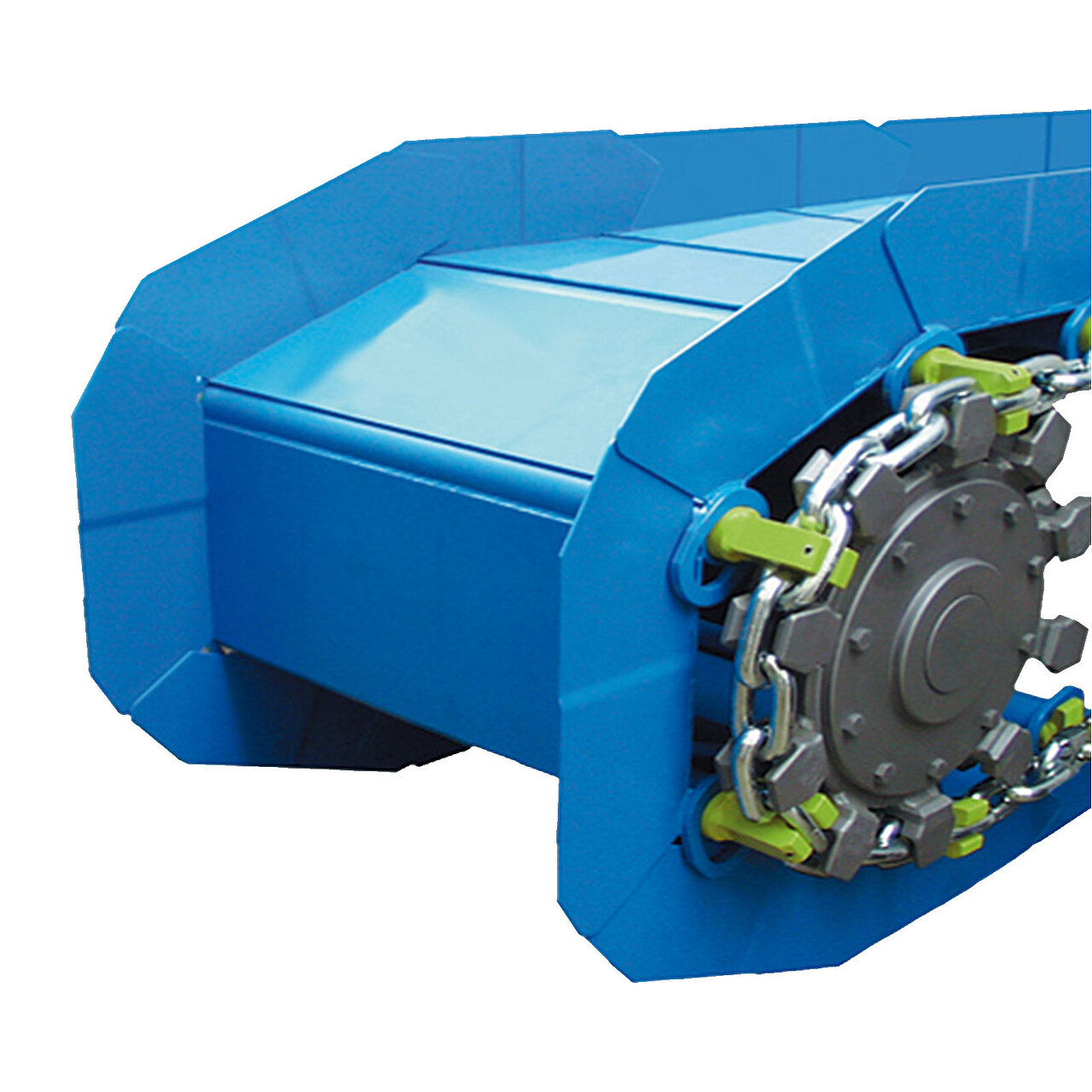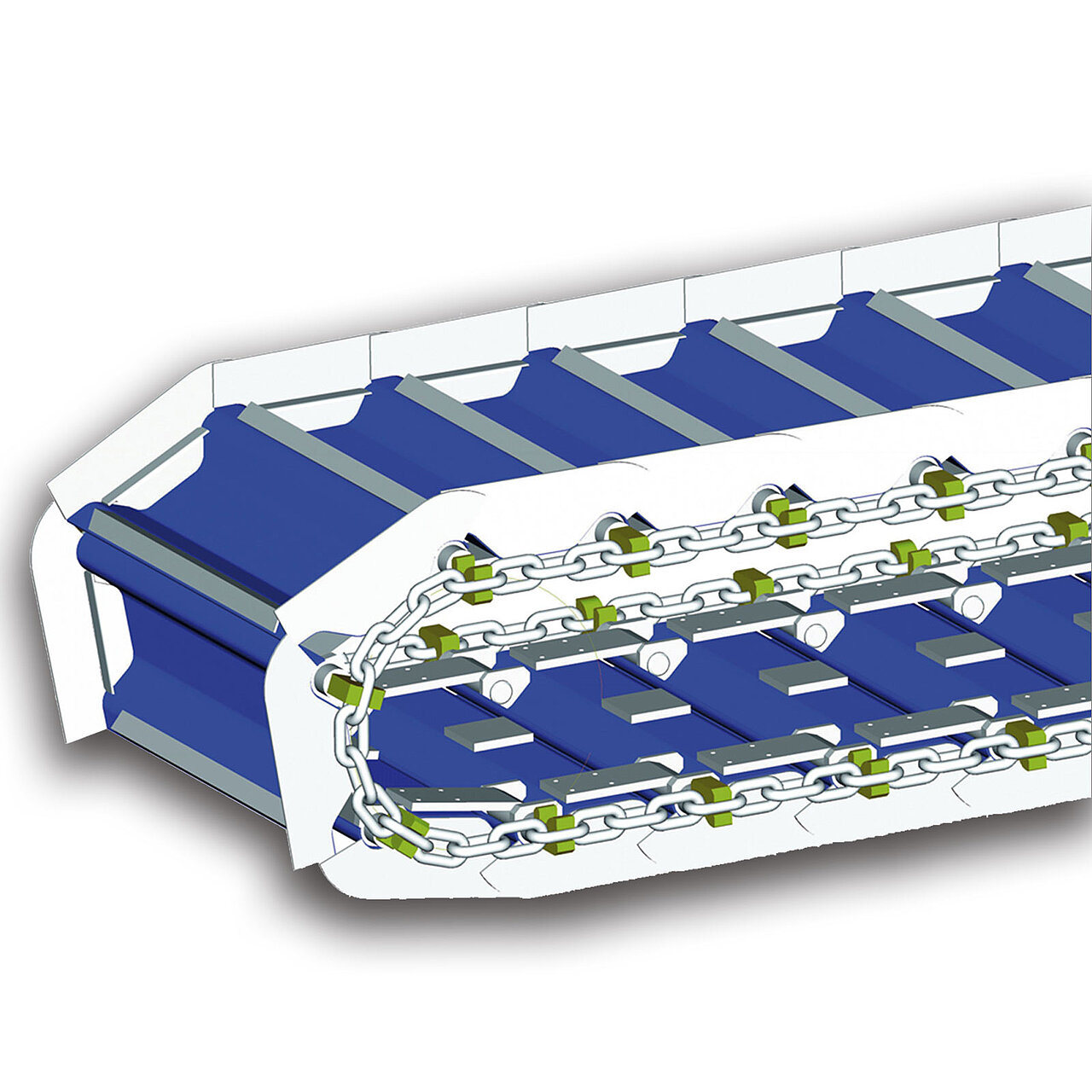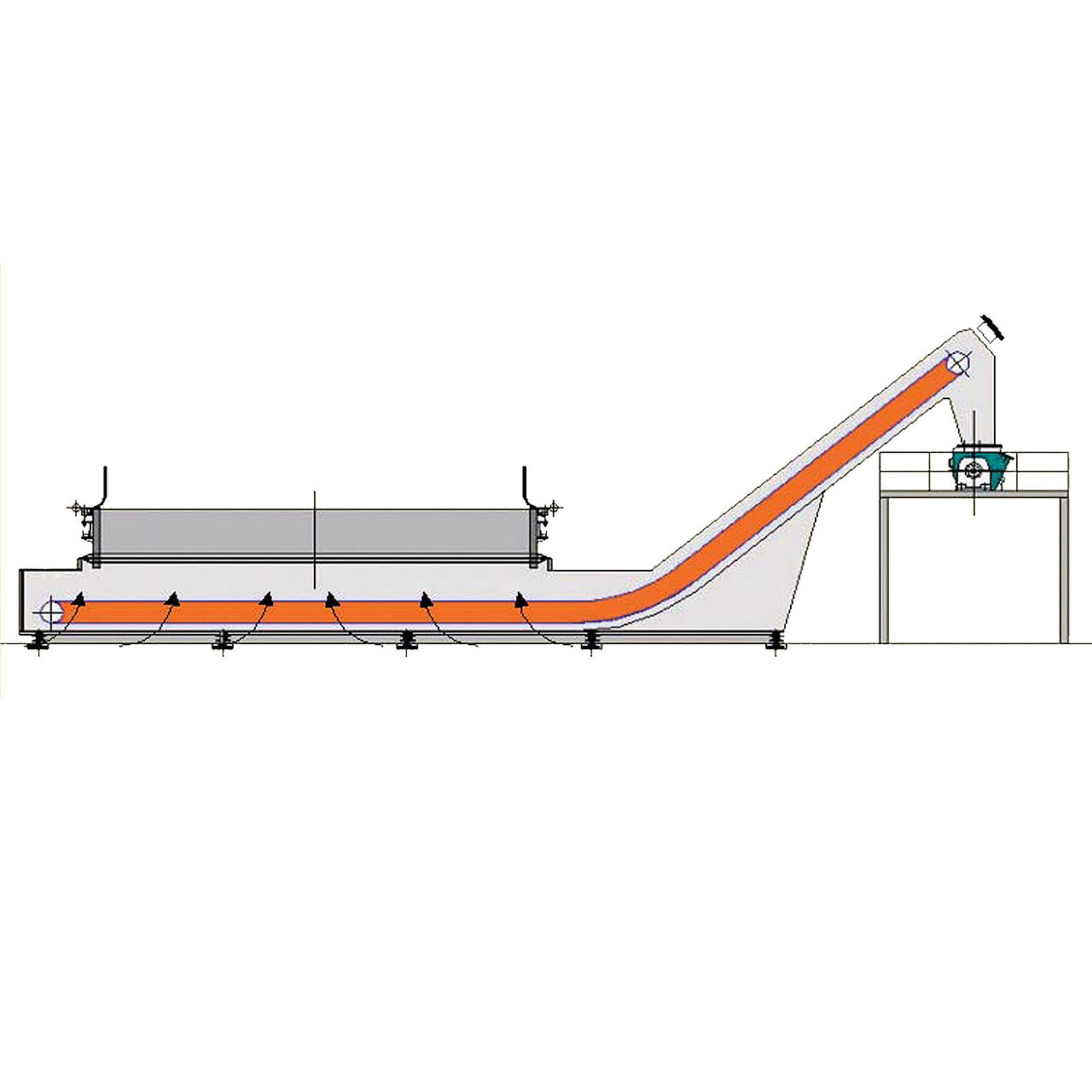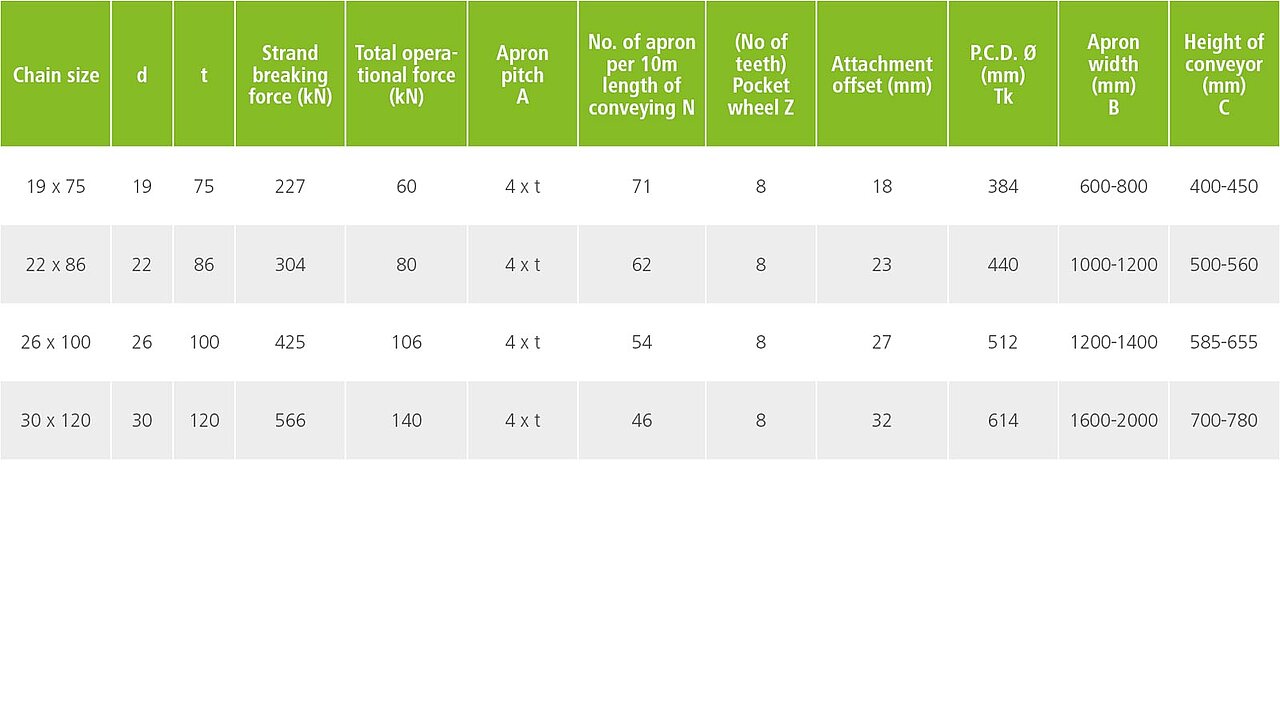RUD apron conveyor
With respect to other apron feeder systems, the RUD apron feeder remains sealed both during straight as well as curved conveyor sections. This system was developed based on the proven round steel chain, and is specifically attuned to it.
In dry ash removal, unlike wet deashing, the product is not scraped on the bottom of the trough but carried on plates, connected to the conveyor chains, which in turn are removed from the conveyor case. This occurs via rollers and/or if necessary rails. The conveyor chain is protected by baffle plates projecting over the plate side walls.
The conveyor chain is driven via externally toothed sprockets (pocket wheels) which are more tolerant of longitudinal chain wear than internally toothed wheels.
Depending on the angle of the inclined part of the conveyor, 5 to 70 t/h conveying capacity rates are achieved. 100 t/h throughputs have already been reached. The conveyor has been designed to be 2000 mm wide.
Conventional conveying speeds range from 0.01m/s....0.07m/s; they seldom exceed 0.1m/s, and are achieved with adjustable electromechanical or hydraulic drives.
This principle offers the following advantages.
→ Informations:
Catalogue RUD Conveyor systems, questionnaires & brochures

Applications of the apron conveyors
Use in the branches:
• Mining
• Power station industry
• Tunneling
• pit and quarry industries
• Chemical industry
• Recycling industry
• cement industry
→ For bulk material conveyance and general cargo conveyance in power stations
→ Use in area of recycling
→ Use in building material works
→ At particularly heavily loaded areas
→ etc.
Advantages of the apron conveyors
• Lower coefficients of friction in the winding compartment which means that, in some cases, a smaller chain size with comparatively equal capacity can be used.
• As the conveyor chain does not run through the material being conveyed, it is subjected to less wear than in wet ash removal.
• Relatively undisturbed by large ash lumps which can sometimes fall off the boiler wall during soot blowing.
• Even easier to service than the already low-maintenance chain equipment of scraper wet de-ashers.
• With a RUD slab conveyor, dry de-ashers can be made significantly lower with respect to other design principles.


















